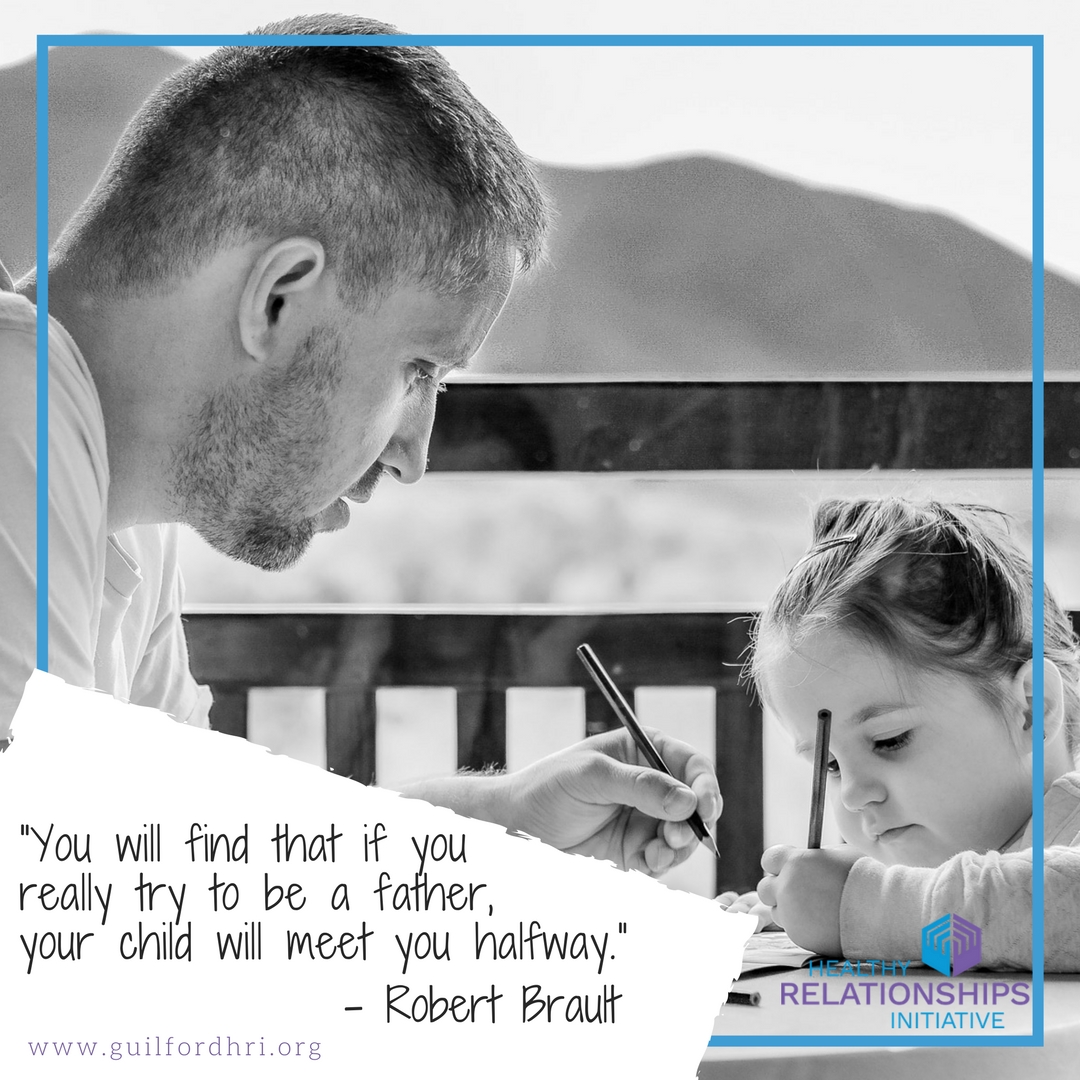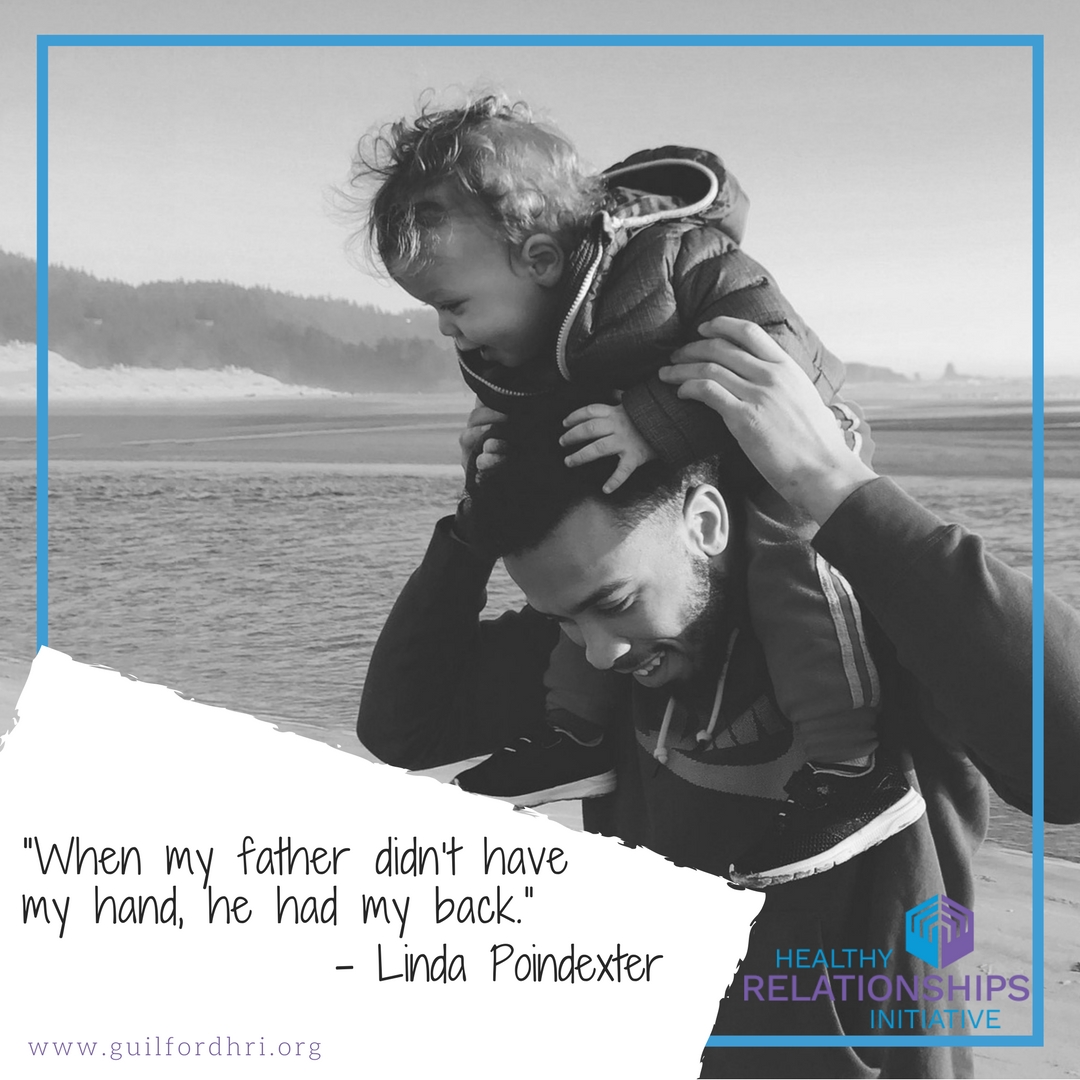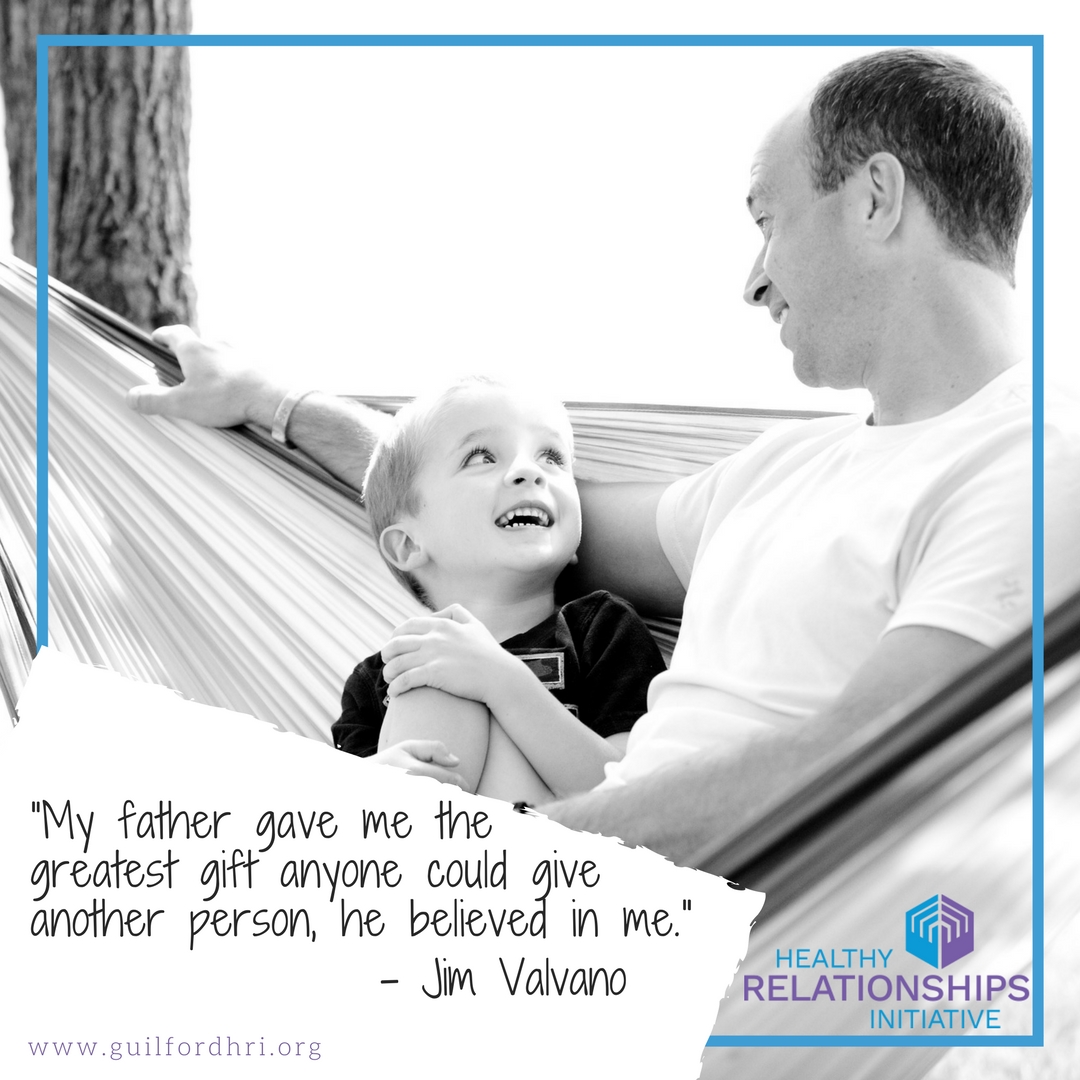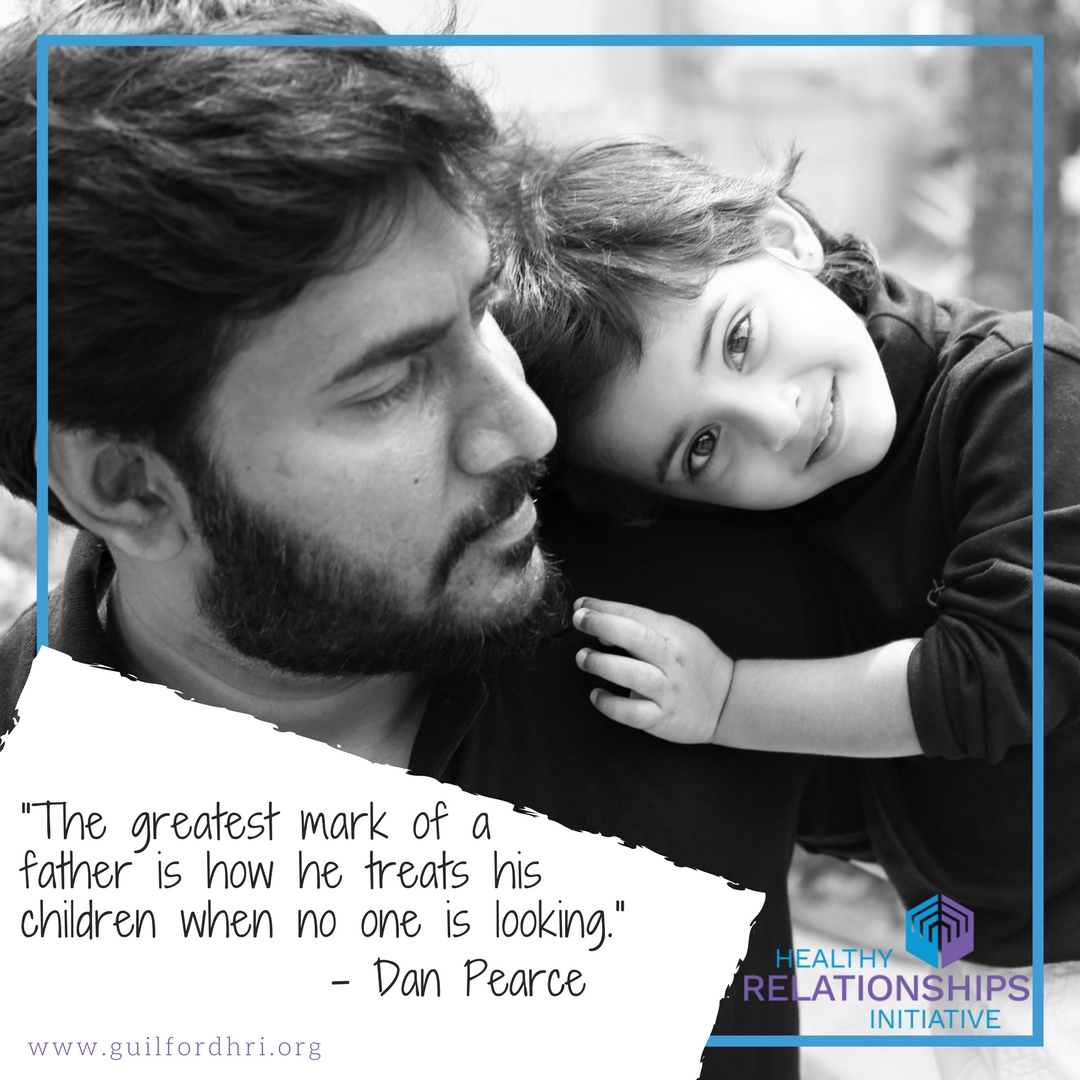
Meet You Halfway

He Had My Back

The Greatest Gift

A Truly Rich Man

The Greatest Mark of a Father

Greensboro Parks & Rec Has Your Staycation Covered
By Amanda Lehmert, Communications Specialist, City of Greensboro
No time — or money — to take a family vacation this summer? No problem. If you’ve got an afternoon or a whole week off, Greensboro Parks and Recreation has enough low-cost or free entertainment and adventure to get the most out of your family staycation.
For the Culture Kids

You probably think about green grass and playgrounds when you think of parks and recreation, but Greensboro’s department offers a wide array of cultural programs as well.
Our Music for a Sunday Evening in the Parks (MUSEP) concert series offers a free, live concert at a different park everySunday all summer long. It’s a laid back environment, where kids can run around and kick a ball while parents dance or just relax and listen to local bands. Bring your a picnic dinner to round out the evening. Concerts begin June 4.
Or how about taking in a play? The Drama Center will perform “The Tempest” June 28-30 at Barber Park. Admission is free, although donations are welcome. It’s a low-risk way to introduce the kids to Shakespeare.
For Adventure Addicts

In the last year, Greensboro has added two great new park features for kids and adults who love a fast ride: the Keeley Park Pump Track and the Latham Skate Park.
The pump track is a continuous loop of dirt hills and berms perfect for your bike. It’s meant to be ridden continuously without pedaling — but don’t worry, you’ll still get quite a workout.
There’s also a track for beginners of any age. And unlike our many amazing mountain biking trails, this is small enough that you can squeeze some fun into as little as a hour.
Greensboro’s also got two awesome new skate parks. The biggest is the Latham Skate Park, just off the Latham Park Greenway next to Greenhill cemetery.

We’ve got street features for grinding, cement bowls and vert walls. Bring your skateboard, inline skates, scooter or BMX bikes. All wheels are welcome.
Both facilities are free and open from dawn until dusk. Just remember to bring your pads and helmets.
For Those Muggy, Miserable Days
OK, we get it. Summer is hot. You might not want to go out and work up a sweat.
We’ve got the cure for that, too. The City has outdoor pools at Lindley, Peeler, Windsor and Warnersville Recreation Centers open from Memorial Day weekend to Labor Day. It costs only $2 to enter, or $1 for children under 13.
Each pool is also free one day a week under our Pool Pals program. Check out our brochure for details.
Another no-cost option to cool off: the Keeley Park and Barber Park Spraygrounds. They’ll get you wet, and you don’t have to know how to swim to enjoy it.
If water really isn’t your thing, try a leisurely walk in the Bog Garden. It’s shady and features tons of wildlife. It’s perfect for little kids you want to introduce to nature hikes.
What It Means To Really Unplug On Family Vacation


Strengthening Social Connections on Summer Vacation

By Christine Murray, HRI Director
What’s the perfect recipe for summertime family fun, whether on vacation or close to home? Over the last two days, we’ve looked at two key ingredients that researchers have identified as helping children make meaning of their family vacations: (1) having fun and (2) trying new things. The third ingredient is perhaps the most important one: social and relationship connections.
For family fun and vacations, social and relationship connections are sort of like the glue that connects the other ingredients. You can do fun and new things, but if there’s not a sense of bonding and connecting, those new activities most likely won’t have as powerful an impact on your family’s relationships.
The children interviewed in Hillbrecht and her colleagues’ 2008 study mentioned the importance of social connections for their experiences of family vacations, and they mentioned relationships with their immediate families, as well as their extended family members and family friends. In other words, family vacations often present opportunities for children and parents to bond not only with each other, but also with other relatives and close friends.
For families who are able to take time to get away–whether for a week or more, or even just for a few hours–from their usual routines and environments, this vacation time can serve an important purpose for solidifying their relationships with one another. In addition, vacations often provide more extended time together, especially if they come with a break from work, school, and other normal family routines.
Now, most parents would agree that family vacations–and even shorter family outings–often don’t go as planned. We may go into the vacation or outing with an ideal vision that everyone will get along beautifully, be in good spirits, and express nothing but appreciation for the chance to have fun together. While it’s a good thing to be positive and optimistic about your family, it’s also unfair to hold an idealized version of family bliss as your expectation for your time together.
It’s normal for kids to melt down, parents to get stressed, conflict to arise, and other frustrations to develop, even in what are “supposed to be” the most fun settings. In fact, when children and families get off of their normal routines and into new and unfamiliar environments, it may be even more likely for these things to happen since you’ve got a lot of new details to figure out.
When these situations arise, practice good conflict management, communication, and stress management skills to help diffuse tension. Remind yourself that family bonding doesn’t always have to look perfect to help strengthen your relationships. And, keep in mind that your family relationships can grow through difficult times, just as they can through the fun ones.
This summer, as you’re planning your family fun, consider ways to build an intentional focus on connecting and strengthening your relationships. Treasure the time you spend connecting with each other and other friends and family members who are important to your family. And even in moments when things don’t go exactly as planned, remember that you’re helping your children create memories that will help to solidify what your family means to them to help guide them in the years to come.
Reference:
Exploring New Things Within the Familiarity of Your Family

By Christine Murray, HRI Director
“Novelty and familiarity, therefore, meant not only a relaxation of normal responsibilities, but also new activities and adventures with more freedom and independence, all within a safe and socially stable environment.” (Hilbrecht, Shaw, Delamere, & Havitz, 2008, p. 560)
This week, we’re exploring ways to make the most of your family’s fun times together, and in particular, we’re looking at three important components of family vacations for children based on research by Margo Hillbrecht and her colleagues. Yesterday, we looked at ways to maximize fun with your family by setting boundaries to protect against the things that often block fun in families. Today, we’re focusing on the 2nd meaningful aspect of family vacations for children that Hillbrecht and her colleagues identified: novelty and familiarity.
Based on this research, it turns out that trying new things within the comfort and familiarity of your family makes a huge impact for children, and hopefully for the adults in the family as well! Vacations–and even staycations and new experiences in your own hometown–offer opportunities for families to step outside of their normal routines and activities and try out new ways to connect and have fun.
Children feeling safe to explore new experiences and environments in the context of stable, familiar relationships with their parents is what secure attachments between parents and children are all about! Summertime–and family vacations in particular–are a great time to do activities as a family that do two important things at once. First, new activities help family members grow and expand their horizons. Second, doing these new activities helps to further strengthen family bonds.
Throughout this summer, and especially when you travel with your family, challenge yourselves to step outside your comfort zone and try new and different things. Try eating a different kind of food together. Explore a new park or hiking trail. Test out a new activity that you’ve never tried–like kayaking, paragliding, ziplining, or doing something artistic together.
Adults, as you and your family step into new experiences, remember what a powerful role model you can be through how open you are to new things! Try to be open and positive. Show your kids that it’s okay to be uncomfortable when trying to new things, but to do them anyway. Help them to see that it’s normal to feel a little awkward when you’re trying something for the first time, and it’s okay to not be an “expert” when you’re just learning something new.
This summer, make a point to step outside your and your family’s comfort zone to try new things. Remember that this may be one of the best ways to make a lasting impact on your children, all while growing and bonding together at the same time!
Reference:
